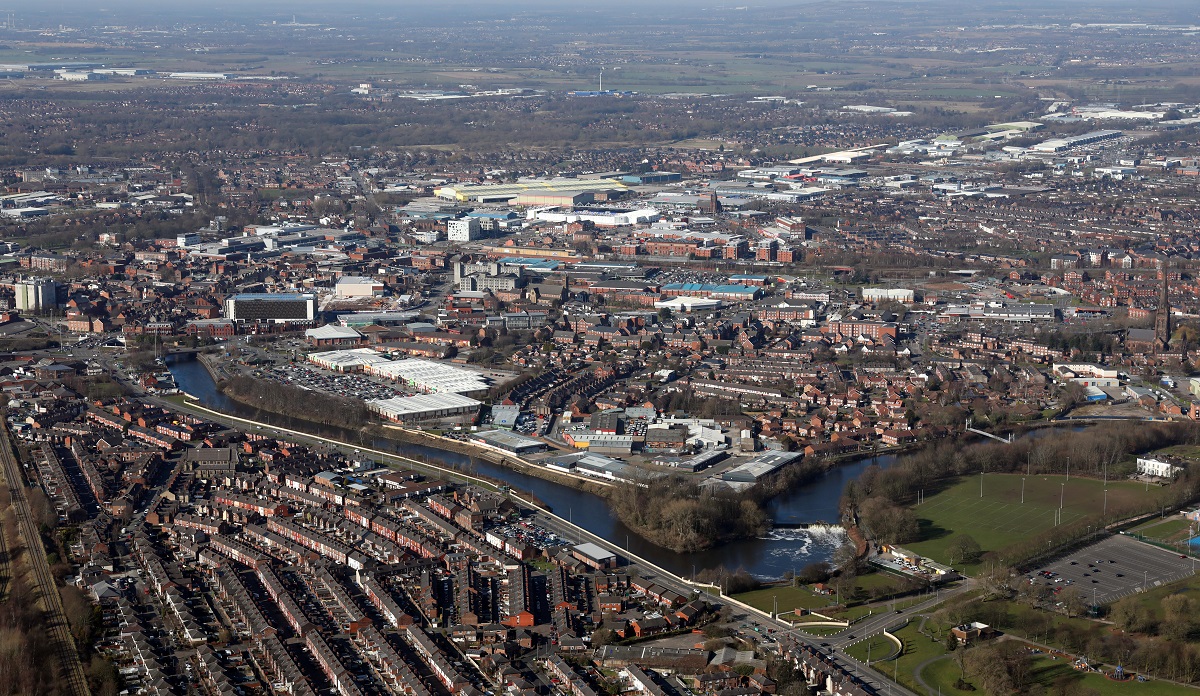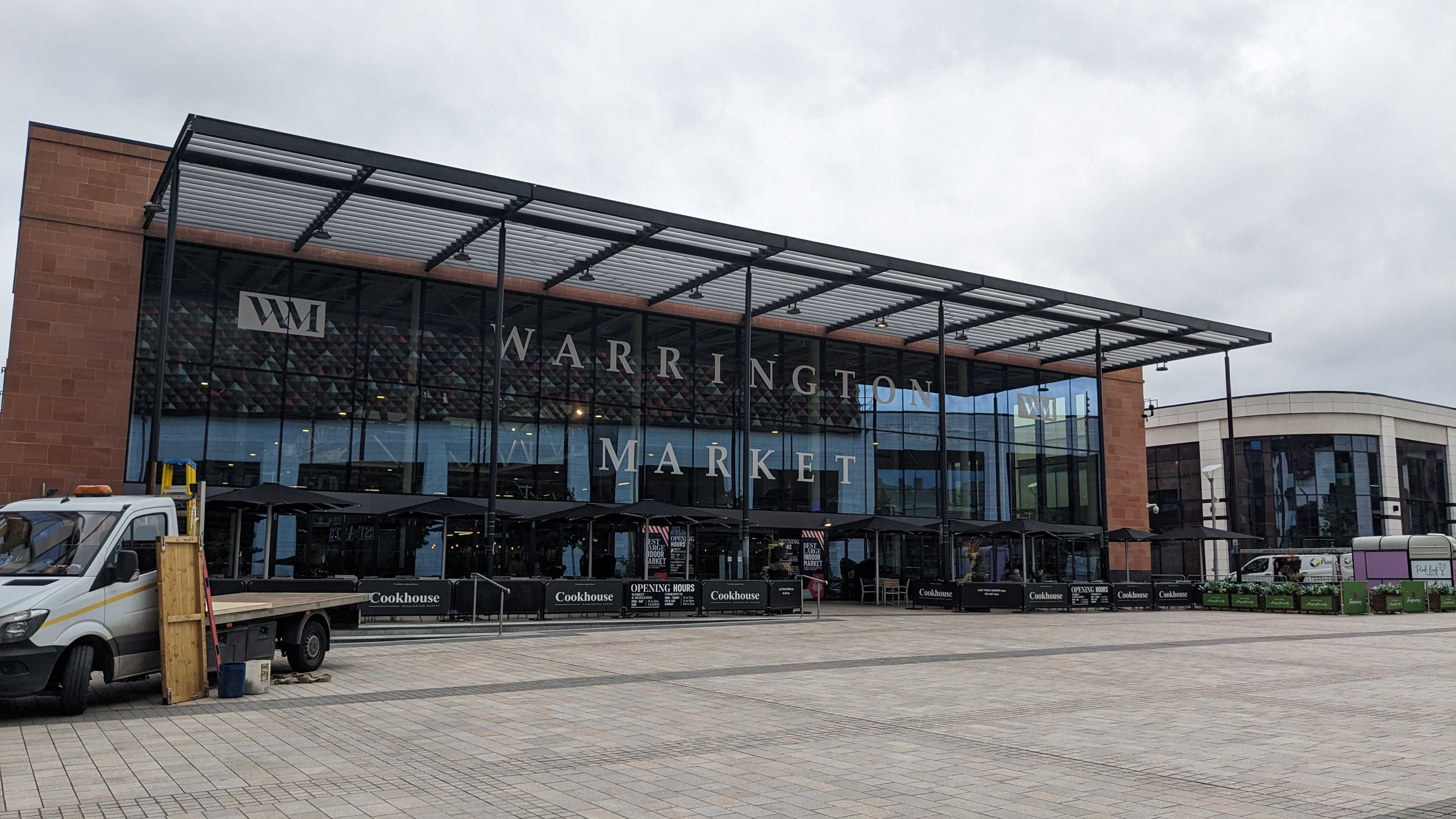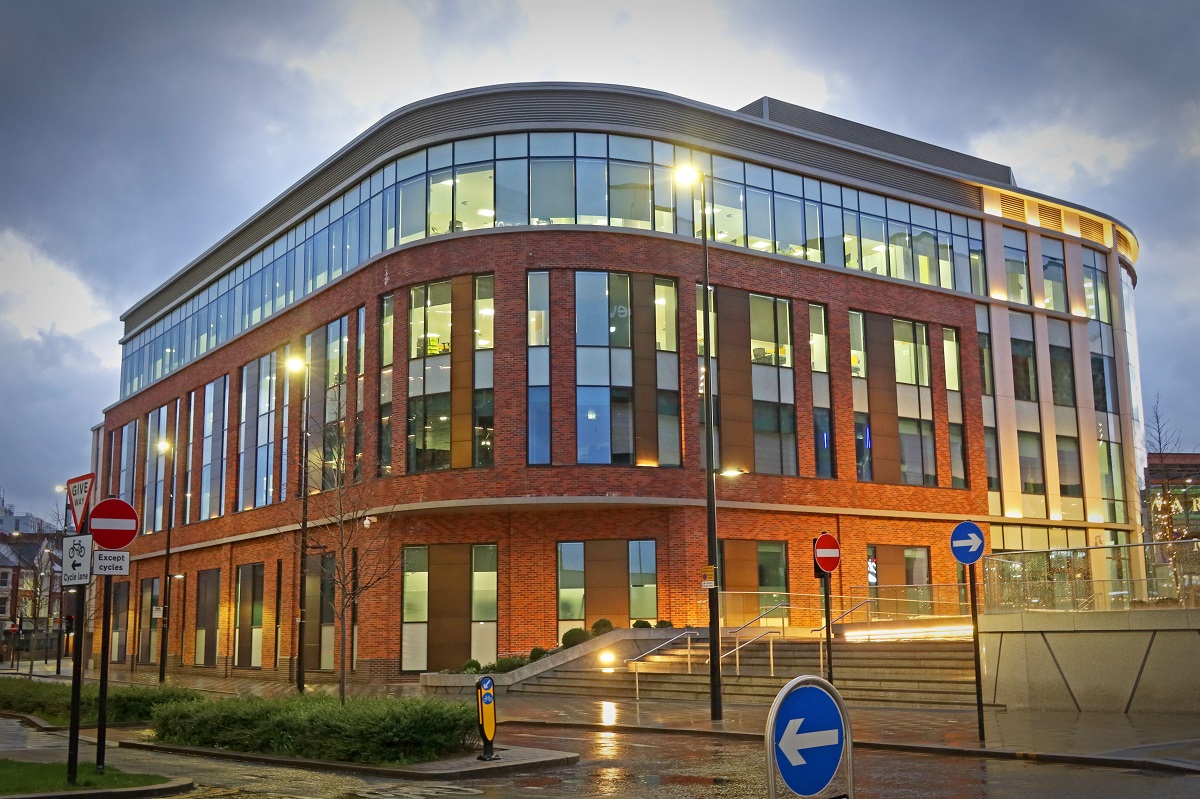Warrington: Forged in tragedy, united in resilience and on the brink of political change
Warrington is a town of reconciliation and community. But its seems even this town cannot forgive 14 years of Tory misrule
Warrington could be a divided town. Tucked between Manchester and Liverpool, it is the home to many different identities. The town is dual-county, residing half in Cheshire and half in Lancashire. The beating heart of the Northern powerhouse, multiple industries thrive here: Warrington is a large hub of nuclear engineering, with a manufacturing history that spreads across wire, textiles and gin.
It has also seen its share of tragedy and violence. The town centre has been the site of IRA conflict, including the devastating 1993 terror attack which led to the death of two children and injured countless others. In 2007, local resident Garry Newlove was murdered by a gang of drunken youths who vandalised his wife’s car. More recently, Warrington was the home to Brianna Ghey - the teenager who was murdered in a transphobic attack by her own friends in a crime that horrified the nation.
Walking around the town centre on a cloudy summer day in June, it is not division that characterises Warrington, but community. Amongst the handsome red-brick terraces, manicured gardens and grand Georgian buildings, locals smile and wave to each other as they go about their daily lives. On Bridge Street, the River of Life memorial fountain stands proud - a tribute to those who died in the terror attack and a symbol of hope for future generations. A short walk away, you’ll stumble across the Peace Centre - a pillar of Warrington’s community, set up to promote understanding and community cohesion in the wake of the tragedy and violence that fell on the town in 1993. It is a place of immense pride to the local Warringtonians.
Strength and forgiveness are in the town’s blood. Earlier this year, locals banded together in the wake of Brianna’s death, with more than a thousand people attending her vigil in a moving display of community spirit. Helen Newlove, the wife of Garry, set up Newlove Warrington in the wake of her husband’s death, aiming to make the town a safer place for people to live and improve local opportunities for children. In 2010, she was elevated to the Lords, becoming Baroness Newlove, and serving as the national victims commissioner between 2013 and 2019.

Warrington from above
Charlotte Nichols, the Labour candidate for Warrington North and former MP, described Warrington as town “where so many people go above and beyond to look out for their neighbours and their area”. She told The Lead: “That community spirit has been most evident on some of our town's darkest days, where the whole town has pulled together behind the extraordinary moral leadership shown by families like the Ghey family, the Ball and Parry families, and the Newlove family. Where we have experienced tragedy, there's always been a determination to build for positive change as part of the legacy, rather than fostering division or hatred – it's a spirit I find completely inspiring and admirable.”
Reconciliation is brewing on Warrington’s political fault-lines, too. Warrington North has long been a Labour stronghold. Warrington South, however, has been a swing seat. In 2019, Conservative MP Andy Carter received a narrow majority of 2010 votes, unseating Labour’s Faisal Rashid. Like many up and down the country, it looks likely that the party will snatch the lost seat back, as Labour’s candidate Sarah Hall is on course to take the seat with a 27 per cent majority.
The Lead joins the Labour party canvassing in Woolston - a parish in Warrington with 60s and 70s style semi-detached houses boasting neat gardens of trinkets, gnomes and manicured flower beds. As we go door to door, one thing becomes startlingly clear: the Tories are haemorrhaging what little support they had left. Of the thirty or so voters we talk to that day, the majority of them say they will vote Labour. For those who previously voted Conservative, many are undecided, but declare they can not return it to the party they previously supported. “Nothings changed, everything’s getting worse,” one beleaguered resident sighed. Another man - 89 years old and lifelong Tory voter - laughs when we ask him if he’s given much thought to how he might vote: “Well I certainly can’t vote Tory, can I?”
In the town centre, locals are sipping coffees and busying themselves with their shopping. Political disillusionment is rife in this part of town. Many tell The Lead they simply “don’t do politics”, whilst the vast majority of others say they are still undecided - and thoroughly uninspired. One 70-year old man says he has become so disgruntled with politics he thought about “not voting altogether”, despite having been politically engaged all his life. One middle-aged woman simply says “they’re all snakes”, while her friend nods in agreement: “they’re all in it for themselves”.

Warrington Market
Despite there being a considerable lack of party support, the locals are clearly galvanised by specific issues. One woman in her mid-20s tells me that her key priorities are the NHS and the price of her mortgage. “I’ve had family members in and out of hospital, waiting for hours at A&E…I also bought a house last year…we’ve had to go in at the highest we can afford.”
The NHS comes up repeatedly in conversations. Warrington has long been in need of a new hospital, but the government has repeatedly snubbed local bids to build one. Several residents say they can not trust the government to deliver on the NHS. On the door to door, one life-long Labour voter tells us she will be voting in the interest of her sick daughter, while an elderly man in his late 80s says he will be throwing his vote to Labour - unwillingly - because he can’t convince himself the Tories care about the NHS. “I’ve got a bad heart - I’m worried about dying alone in A&E, waiting to be seen. It happened to my friend”, he says.
Voters are concerned about immigration too. In Warrington North, a local Holiday Inn houses a number of migrants - which some locals raise with nervousness and suspicion. But most explain their concerns about immigration are rooted in fears over their town’s capacity and demands on the infrastructure of this country. “Nobody actually says: are we building enough? Notwithstanding hospitals, are we building enough sewage works to deal with this? There’s a whole load of infrastructure things to worry about”, a 70-year old voter says. Another woman, 42, says she “can’t get a GP appointment” and her sister “can’t find a house”: “We can’t even look after our own. I want to help those who need it, but I’m worried about what it would mean for my children”. For many of these voters, immigration concerns come hand in hand with their own declining living standards and their interactions with public services. Social housing, the NHS and the local council have all faced intolerable pressures in this area. Many feel the town’s services are simply unable to cope with increased demand.
Apathy is not the defining characteristic in Warrington. People are concerned about the state of their town and the wider country and are visibly angry at what they perceive as a government ignoring their concerns. Even in this town of forgiveness and resolution, voters express deep-rooted hostility toward politicians. There is a distinct feeling that many have given up on hoping for change. If Warrington is anything to go by, a reluctant Labour victory is on the cards. But the party will have to move mountains if it wants to re-engage a community like Warrington, blighted by years of Tory misrule.
Support our work
You can discover more about The Lead and The Lead North project and see how to support our work to ensure independent, in-depth, journalism takes place across the topics we know you care about and places less covered. We are also running a GoFundMe to help support our work for The Lead North and as well as continue our in-depth weekly newsletters also help us go back into print again later this year.
The Lead is now on Substack.
Become a Member, and get our most groundbreaking content first. Become a Founder, and join the newsroom’s internal conversation - meet the writers, the editors and more.



